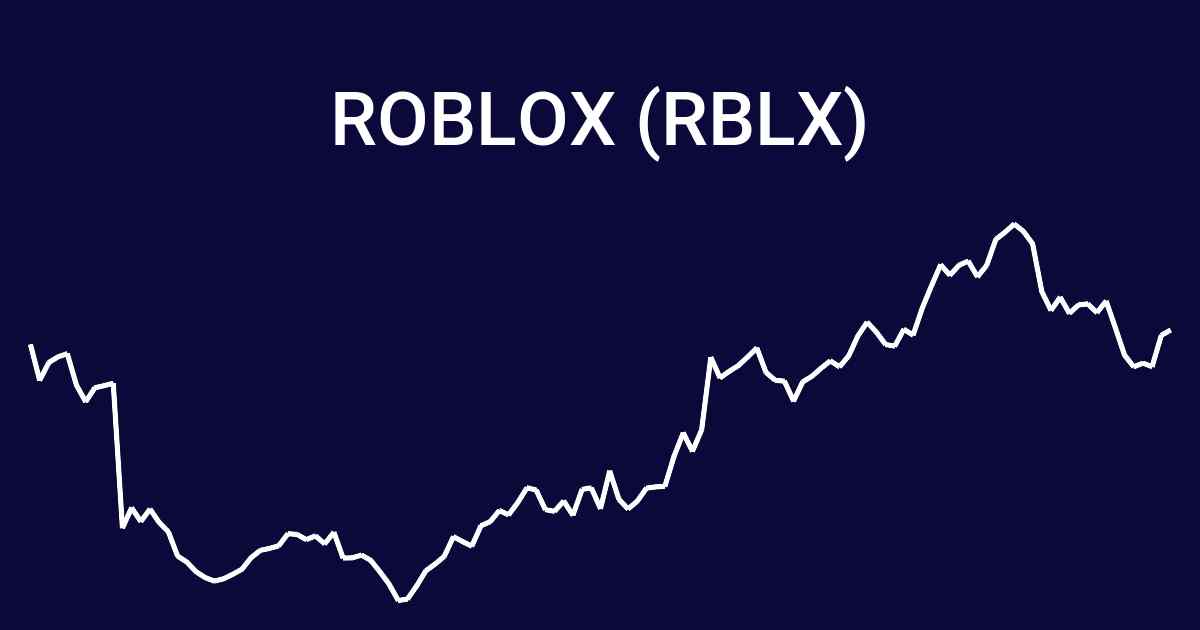Introduction
A prominent platform, Roblox, has attracted a lot of attention as the metaverse has emerged as a new frontier in the realm of digital economies. Roblox insider trading has become a hot topic among investors who are trying to predict the future of the company due to its skyrocketing popularity. Notable individuals, such as CEO Dave Baszucki and other members of the executive team, have recently been involved in large stock transactions. For investors to successfully traverse the intricate metaverse landscape, they must grasp the intricacies of these insider trades. This investigation dives into the complexities of Roblox’s insider trading scene, illuminating recent trades and offering helpful hints for individuals interested in reading the signs in this virtual world.
Roblox Insider Trading : An Overview To Insider Trading
Trading on the Open Market: Like ordinary retail investors, insiders often use brokers to buy. And sell a company’s stock on the open market. Executives and other company insiders can use this strategy to buy . And sell shares based on their predictions about the company’s future success. The Legality of 10b5-1 Plans: The SEC Rule 10b5-1 establishes the legal parameters for systematic insider trading. Insiders are allowed to set up plans to buy or sell company stock in advance under this rule. These plans, which are referred to as 10b5-1 plans, give a methodical way to conduct transactions. And offer protection against insider trading accusations because they are carried out according to predetermined conditions.
Recent Roblox Insider Deals

Top Executives: CEO Dave Baszucki
Nearly $40 million USD worth of Roblox (NYSE: $RBLX) stock was sold by CEO Dave Baszucki and other members of the executive team not long ago. Key company figures are making a big move with this selling activity. CEO Dave Baszucki made $30,780,000 from the sale of 750,000 shares. Members of the team such as Michael Guthrie, Mark Reinstra, Barbara Messing, Manuel Bronstein, Craig Donato. And Amy Rawlings all had a hand in the sale and added to the total market value.
The Sale Of 10% Owned By Han Kim
Han Kim, who is 10% owner at Roblox, sold 100,000 shares in an insider transaction. And reported a large insider sale, which affected the transaction value. The $3,879,000 total transaction price tag suggests that a key player was quite active. Given Han Kim’s insider sale, Roblox’s stock price could be affected. Although the exact effect is subject to change based on a number of market variables, analysts and investors tend to take notice of such deals. So they can gauge the insider’s opinion on the company’s future success.
Roblox Insider Trading : Details Of Executive Team Transactions
Dave Baszucki (CEO)
Dave Baszucki, the CEO of Roblox, as of late taken part in a critical stock exchange. It is by selling 750,000 portions of Roblox stock at a complete worth of $30,780,000. This significant deal, as revealed in the Security and exchange Commission (SEC) filings [SEC recording 1] [SEC documenting 2]. It brings up issues about the inspirations driving such a choice. While insider deals can be driven by different variables, financial backers might decipher this move as either a vital monetary choice or possibly flagging the Chief’s point of view toward the organization’s future presentation. The exchange’s size and worth make it an eminent occasion with regards to Roblox’s ongoing remaining on the lookout.
Other Executive Team Members
Notwithstanding President Dave Baszucki, a few other key individuals from Roblox’s executive team were engaged with stock exchanges. Craig Donato, the Central Business Official (CBO), sold 10,735 offers at a worth of $425,505.34 [SEC filing]. Michael Guthrie, the CFO (CFO), stripped 12,669 offers adding up to $502,163.69 [SEC filing]. Daniel Sturman, the Main Innovation Official (CTO), partook in the stock deal by discarding 9,530 offers esteemed at $377,742.52 [SEC filing]. Manuel Bronstein, the Central Item Official (CPO), sold 37,560 offers with an all out market worth of $1,488,773.23 [SEC filing].
Barbara Wrecking, the Head Promoting Official (CMO), stripped 8,154 offers at a worth of $323,201.73 [SEC filing]. Amy Rawlings, the Head Bookkeeping Official (CAO), participated in the offer of 2,859 offers, comparable to $113,322.75 [SEC filing]. Mark Reinstra, the General Insight (GC), sold 11,278 offers with a complete worth of $447,028.34. Besides, the Baszucki Family Establishment, partnered with the President, partook in the exchange by selling 150,000 offers at a worth of $6,156,000 [SEC documenting 1] [SEC recording 2]. These different exchanges among the chief colleagues raise contemplations about the aggregate feeling. And monetary methodologies inside Roblox’s authority, possibly impacting financial backer insights and market elements.
The Insider Sale Of Han Kim

Han Kim’s Position As Roblox’s 10% Owner
The recent insider trading activities of Han Kim, who is listed as a 10% owner at Roblox, were revealed in a Form 4 filing with the U.S. Securities and Exchange Commission (SEC). Kim sold a significant number of shares. The investing community and regulatory authorities take note of Kim’s transactions . It is because of his substantial stake in the company as a 10% Owner. Because of the high degree of influence and interest that comes with being a 10% Owner. The trading activities of this individual are closely monitored by the company.
Offering 100,000 Shares For $3,879,000
Sales of 100,000 Roblox shares by Han Kim were recorded in an SEC filing, with a combined value of $3,879,000. A lot of people are wondering why Kim made such a huge sale. Since this divestiture looks like a strategic move on her part. Kim is one of many key stakeholders whose decisions are carefully watched by investors and market analysts. Their actions reveal their confidence in the company’s future and other strategic considerations.
Possible Effects On The Price Of Roblox Stock
The stock price of Roblox may be affected if a major shareholder were to sell such a large number of shares. Market sentiment can be influenced by insider transactions, although they do not determine stock movement solely. Some investors might see insider sales as a sign that they don’t have faith in the company’s ability to meet short-term goals. But how it affects stock price depends on a lot of things, like the state of the market, the company’s finances, and the insider’s motivations for selling. In order to determine the long-term effects of Han Kim’s insider sale on Roblox. It will be essential to watch how the market reacts and analyse changes in investor sentiment.
Roblox Insider Trading : Insider Transactions And Their Significance
What Is An Insider And What Are The Disclosure Requirements?
Those who hold more than 10% of a company’s equity securities, whether as officers, directors, or beneficial owners. They are considered insiders within public companies according to the Securities Exchange Act of 1934. As a matter of law, these persons must immediately notify the public of their transactions by filing Form 4 reports with the U.S. Securities and Exchange Commission (SEC). In order to keep things open and give investors a glimpse into how important people in the company make decisions. The disclosure needs to happen within two business days of the transaction.
How Major Insider Transactions Are for Stockholders
Positive Indicators of New Purchases: The buying of additional shares of stock by executives. And other insiders of a company is generally seen as a good sign. Using their own money to buy more shares, insiders are showing their faith in the company’s future. Insider purchases are commonly seen by investors as a sign of optimism about the company’s future performance and the stock’s potential for growth in value. People already working for the company have a leg up when it comes to understanding its inner workings and where it has room to grow.
A Critical Analysis of Insider Sales: The interpretation of insider sales, on the other hand, can be more subtle. There are a lot of things that investors need to think about, even though insider sales sometimes show a lack of confidence or a bad attitude. Personal financial needs, diversification, or other reasons unrelated to the company’s performance may cause insiders to sell shares. To add insult to injury, stock is a common form of executive compensation. And sales are sometimes a component of prearranged plans such as a 10b5-1 plan. Hence, not all sales by insiders indicate a lack of trust in the firm. Before making a purchase, investors should look at the seller’s overall holdings, the size of the sale, and any statements or circumstances that were mentioned.
Transaction Codes And Areas Of Expansion
A General Review Of The Form 4 Deposit Process
An essential document that must be filed with the U.S. Securities and Exchange Commission (SEC) is the Form 4. This document details any insider transactions involving a public company’s stock. This document must be submitted no later than two business days after the transaction in order to comply with Section 16 of the Securities Exchange Act of 1934. When looking for information about insider trading, it is a must-have tool for investors.
The insider’s identity, position within the company, quantity of shares traded, date of transaction. And price per share are all part of the information that is included in the Form 4 declaration. With this data, investors can see how important company executives feel about the company’s future.
Table I Entry Codes For Transactions
In most cases, the Form 4 filing will contain a table (Table I) that lists all of the transaction codes, which indicate different kinds of insider activity. Investors can’t make sense of the reported transactions without first learning these codes.
P For Purchase, S For Sale
P (Purchase): This can be interpreted as a positive indicator, indicating that insiders have confidence in the company’s performance and believe that the stock price will rise when an insider purchases shares of their company.
S (Sale): On the other hand, when insiders sell their organization’s portions, it is coded as ‘S.’ While not innately bad, a progression of huge insider deals might raise worries among financial backers about the organization’s future possibilities. Examining the unique situation and explanations for these sales is critical.
C For Conversion Of Option A For Forced Sale
C (Conversion of Option): This code is utilized when an insider practices investment opportunities, changing over them into genuine offers. This doesn’t be guaranteed to demonstrate an absence of trust in the organization however might be essential for a pre-arranged monetary procedure.
A (Forced Sale): On the off chance that an insider is constrained to offer offers to satisfy a monetary commitment. It is coded as ‘A.’ This could happen when a chief necessities to meet a responsibility made upon their recruiting or as a feature of remuneration. Financial backers ought to consider the conditions prompting the constrained deal.
Investors who are familiar with these transaction codes are better able to spot patterns and make better decisions. For instance, a progression of ‘P’ exchanges might flag idealism among insiders, while an unexpected expansion in ‘S’ exchanges could warrant nearer examination. Furthermore, ‘C’ and ‘A’ transactions give setting to insider deals, assisting financial backers with separating between routine monetary preparation and possibly concerning exercises.
Things Investors Should Know

Exercise Care When Making A Decision
Before factoring insider transactions into their investment decisions, investors should exercise caution. The fact that an insider sells their shares does not necessarily mean they are pessimistic about the future of the company. The 10% owners and executives may be selling their shares for a variety of reasons, including meeting financial obligations or diversifying their portfolios strategically. Hence, it would be premature to write off an insider’s sale of shares as indicative of a bad sentiment towards the firm.
Along with developments within the company, investors should keep an eye on the larger market context. A company’s future may be affected by changes in the economy, trends in the industry, and the level of competition. So, to get a better picture of the investing landscape as a whole, insider transactions should be considered alongside all of these other factors.
Gaining Familiarity With Insider Selling Motives
Investors must comprehend the various reasons behind insider sales in order to make educated decisions. Lack of liquidity is a typical justification for insider selling. Insiders and executives may sell their shares due to personal financial obligations or as part of an investment diversification strategy. Financial planning, portfolio management, and following pre-established trading plans may have contributed to the large number of shares sold by Roblox CEO Dave Baszucki and other members of the executive team.
Insider selling can also be prompted by a desire for strategic portfolio diversification. A common strategy employed by executives who amass wealth through their company’s stock is to spread their investments across various asset classes in order to lower their overall investment risk. This is just a sensible way for individuals to handle their own money, and it doesn’t mean they don’t trust the company.
Conclusion
The insider trading at Roblox gives us a great look at how important people at the metaverse behemoth handle their money. The market may react initially to large share sales by CEO Dave Baszucki and others, but a closer look reveals a variety of reasons, including financial planning and portfolio diversification. Recognising that insider transactions are a component of a complicated interaction between individual factors and larger market dynamics, investors should exercise caution when dealing with them. To gain a better understanding of Roblox’s position in the dynamic digital economy, it is helpful to combine data from these sales with an exhaustive examination of outside influences.
Frequently Asked Questions
1. Why Did Roblox’s Executive Team, Including Ceo Dave Baszucki, Sell A Substantial Amount Of Shares?
Several things may motivate Roblox’s top brass to engage in insider trading, such as careful budgeting, a diversified portfolio, and strict adherence to previously agreed upon trading strategies. When attempting to make sense of these deals, it is essential to take both the specific drivers and the larger market circumstances into account.
2. How Does Insider Trading In Roblox Relate To 10b5-1 Plans?
Executives and other company insiders can prearrange stock transactions through a systematic approach known as a 10b5-1 plan. By outlining the steps to take in order to legally purchase or sell shares, this plan promotes openness and safeguards against allegations of insider trading.
3. Does The CEO’s Substantial Share Offloading Raise Concerns About Roblox Insider Sales?
Insider sells should be approached with caution and understood in context. Reasons for large-scale insider sales include meeting personal financial obligations, diversifying holdings, and staying true to compensation plans, all of which can cause short-term market fluctuations. To have a nuanced view, you must conduct a thorough examination of external market variables.
4. How Are Insider Transactions Affecting The Market Sentiment And The Stock Price Of Roblox?
Market sentiment can be impacted by insider transactions, particularly those involving key executives. Market participants’ divergent interpretations of massive sales might cause temporary swings in stock prices. In order to comprehend the possible effect on sentiment, investors should distinguish between systematic, planned sales and abrupt, unplanned divestitures.
5. How Does Insider Trading In Roblox-Like Companies Relate To Legal And Regulatory Considerations?
The Securities and Exchange Commission (SEC) governs insider trading with a heavy hand. Prompt disclosure of transactions through Form 4 filings is required of insiders, which includes executives and large shareholders. For insider trading to be open and honest, it is essential to know the laws and follow SEC regulations.